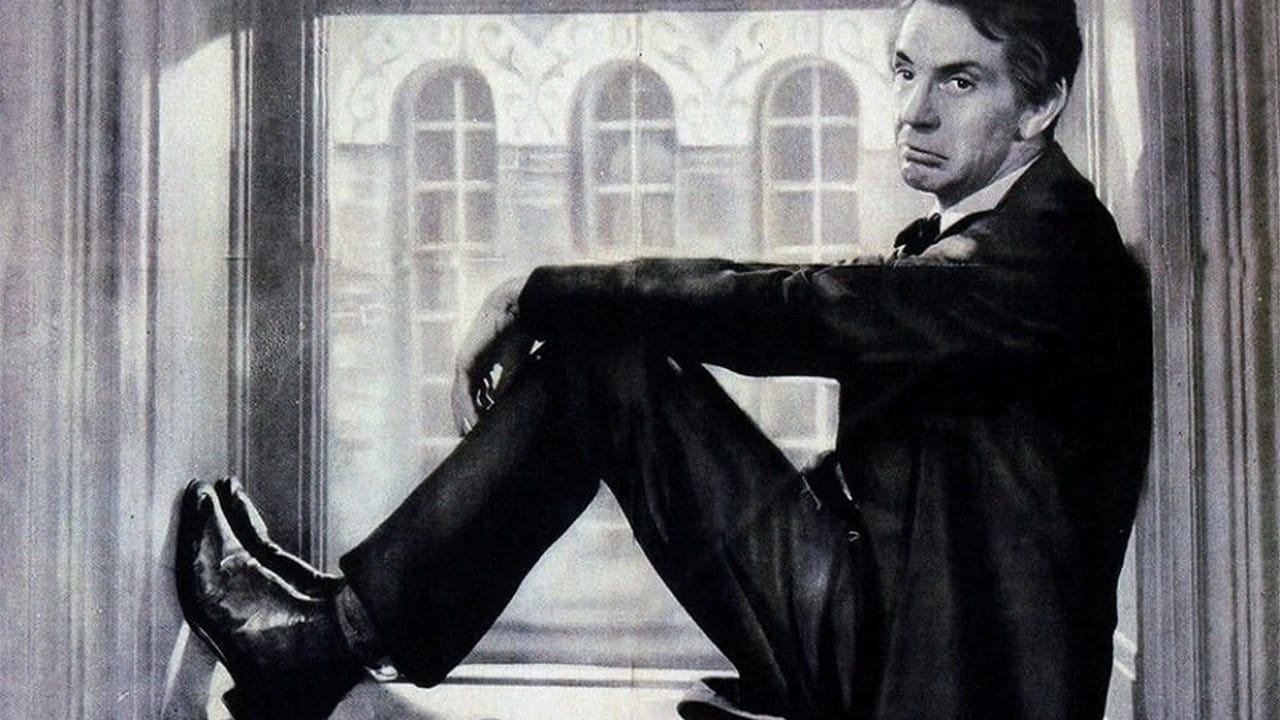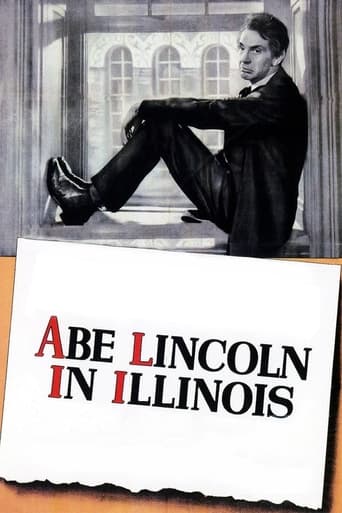Hellen
I like the storyline of this show,it attract me so much
Interesteg
What makes it different from others?
SunnyHello
Nice effects though.
Roy Hart
If you're interested in the topic at hand, you should just watch it and judge yourself because the reviews have gone very biased by people that didn't even watch it and just hate (or love) the creator. I liked it, it was well written, narrated, and directed and it was about a topic that interests me.
Tad Pole
Evidently historians have pegged Abraham Lincoln as the best Lincoln of the 1800s and Daniel Day-Lewis as the top Abe of the 2000s. According to TCM host Robert Osborne, movie-goers of the 1900s voted with their pocketbooks to make Raymond Massey's turn as the country's most famous rail-splitter the premier Honest A of their time (over Henry Fonda), and the Oscar nominator people agreed. (My dad says there's someone named Hal Holbrook famous for doing Lincoln or Mark Twain a century ago--he couldn't remember which, being up in years over 40 and everything.) Anyway, I watched this last night and I thought this Massey dude was much more convincing as a president-elect age Lincoln that as an 18-year-old Lincoln reading in front of the fireplace. (Leonardo Dicaprio had the opposite problem in J. EDGAR, as everyone knew he still looked like the TITANIC kid at the end, just covered with a foot-and-a-half of make-up!) I guess the lesson here for Hollywood types would be that it's better to age a 50-year-old geezer from 18 to 60 than a 25-year-old kid! (By the way, my summary is comprised of Abe's last words in Illinois, according to this movie, at least.)
RanchoTuVu
This film portrays Abe Lincoln's political rise as a man of the people, from his wrestling brawl with town bully Howard da Silva to his failure as a general store owner and his humble beginning in politics as a town postmaster. The film portrays the women in Lincoln's life and the influence they had on him. Perhaps the most influential woman is the one not shown, his mother, but he shares a moving scene with his step mother as he's leaving home, and then with Ann Rutledge, and finally with Mary Todd played in an unusually interesting way by Ruth Gordon. It's perhaps the influence of these women and their uncertain fates that more than balanced Lincoln's well developed humor with a dark and secret melancholy. That aspect is captured through some of the scenes of Massey's Lincoln shot by legendary cinematographer James Wong Howe. Between him, Massey, and Ruth Gordon, this film seems to carry some serious cinematically induced psychological influences.
evening1
I enjoyed this depiction of Lincoln's early years much more than I'd thought, due largely to the compelling characterization provided by Raymond Massey, an actor I'd never noticed before.Abe is charming, endearing, and always fun to watch and listen to. I also enjoyed the depiction of early frontier life in the turbulent years before the Civil War. Abraham Lincoln tackling a runaway hog? It was easy to share the joy this episode brought to both he and the lovely Ann Rutledge.Yet it was sad to witness this homebody getting sucked in by the needs of others, from his status-hungry snob of a wife to plain old folks who wanted a great leader. Abe starts out in life a thoughtful, perhaps melancholy lad, and evolves into a duty-bound man who is clearly depressed, if not henpecked to boot.(I hadn't recognized Ruth Gordon until the final credits. It's ironic that her career spans this role, in which she's dour and unlikeable, and that of "Harold and Maude," where she epitomized a zest for living.) My only complaint about this film is its limited focus. I know it was based on a play that was similarly circumscribed, but I'd have loved to accompany Abe on that train ride and beyond, to observe the really historic part of his career.
allvnev
I have seen this film probably 15 times or more and have been a devotee of the Lincoln mythology (for lack of a better term) for nearly 20 years. I remember first seeing the film as a youngster on the same weekend as the death and funeral of President Kennedy in November of 1963. At that time, the two scenes that struck me as most memorable to my young mind was the one where the local woman tells Lincoln that he is the homeliest man in the county; and, the other scene where Lincoln is telling the slightly off-color joke to a crowd about the man fighting the bear. Also, another visual that sticks in my memory is the somewhat haunting scene where Lincoln revisits New Salem after the once thriving city has become a ghost-town. There are several marvelous aspects of this movie. To begin with, is the near perfect physical and emotional representation of Lincoln by Raymond Massey. Given the photographs of the pre-president Lincoln, making Massey into sixteenth president seems nearly ordained from the beginning. The height, facial structure, and body type is nearly a perfect fit. Regarding how Lincoln spoke, it is hard to determine if that is an accurate representation or not. Historical accounts of Lincoln says that he had a rather high and not necessarily soothing voice. Since, it would be another 30 plus years before there is any kind of recording device, Massey's voice should seem appropriate enough.Additionally, the cinematography is excellent. The on-location or natural shots are superior by black and white standards. Even though I am a devotee of black and white films, color films seem to have the upper hand when filming wide-open or rustic environments. The feel of the indoor scenes such as the ones within the Lincoln Springfield home is nearly perfect for the times. You can virtually smell the cigar smoke or the burning wood stove. Finally, the lighting during the campaign speech scenes are awesome. But, the best part of the movie is how even with some artistic license the characters surrounding Lincoln are historically strong and represent in a film microcosm a very accurate historical reality of Lincoln's early years. For example, starting with Ruth Gordon's portrayal of Mary Linoln Todd. With her character, you can easily feel how much she effected Lincoln. Her persistent pressure on Lincoln to achieve political importance and her hard-nose, sometimes loving, sometimes bitter prescience is from my historical reading just about perfect. Since the film takes place before Lincoln is actually president, Mary Todd Lincoln's shenanigans within the White House or her emotional unraveling in her later years is not an issue here. The romance demonstrated between Lincoln and Ann Rutledge, although later to be historically challenged, then even later to be considered historically (possibly) significant, is quite sadly moving. It is nicely juxtaposition-ed against the image of Mary Lincoln Todd. Howard De Silva as New Salem's local ruffian is although somewhat embellished, still represents Lincoln's ability to relate to people from all walks of life. The film just seems to find the vital essence of young Lincoln before he became president. The surreal, final scene of Lincoln leaving Springfield for Washington D.C. (again although actually happening during the day during a rainstorm)after giving one of his many great historical speeches ("this is where I have lived") catches the eerie but profound feel of how important his leadership is going to mean to the struggling republic. The playing of the "Battle Hymnn of the Republic" although premature, is still simple perfect.

